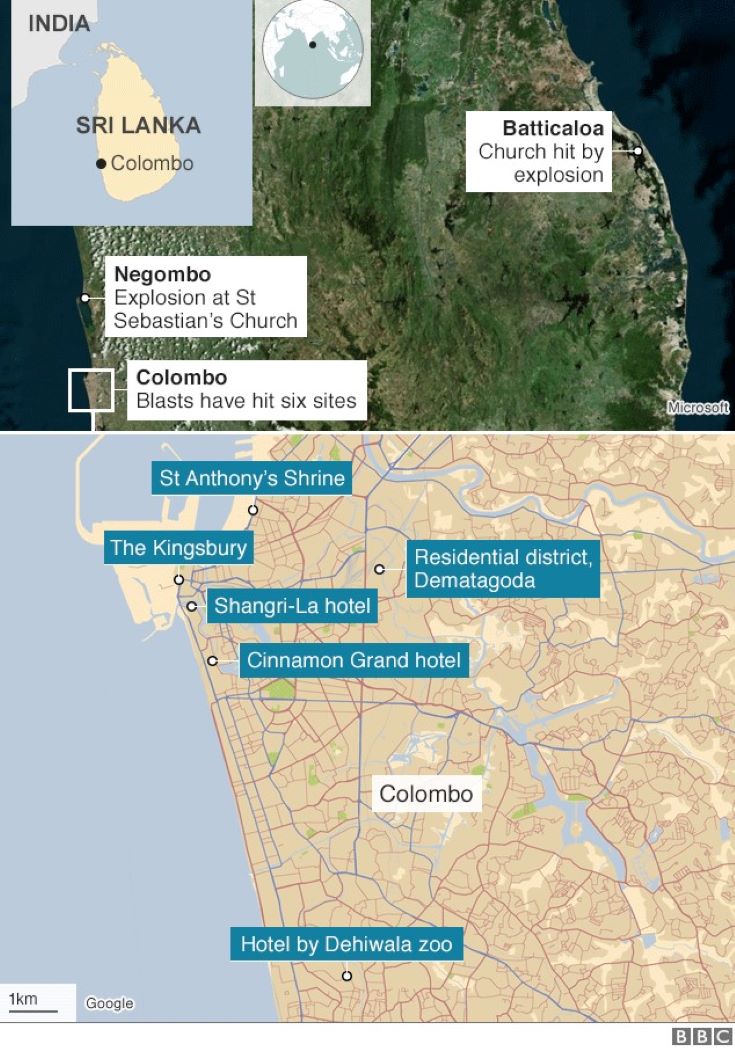Sri Lanka attacks: What is known about the Easter bombings
Sri Lanka was rocked by a series of bombings that killed more than 320 people at churches and top-end hotels on Easter Sunday, April 21, 2019. It is the deadliest violence that the country has seen since the end of the civil war a decade ago. Most of the victims are believed to be Sri Lankans, but at least 31 foreigners are also among the dead, with 14 still unaccounted for, according to the BBC.
How did the attacks unfold?
The first reports were at about 08:45 hrs (03:15 hrs GMT) on April 21. Six blasts took place within a short space of time. Three were at churches in the Kochchikade district of Columbo, in Negombo, to the north and in the eastern city of Batticaloa. The other three blasts rocked the Shangri-La, Kingsbury and Cinnamon Grand hotels in Colombo. The police have not given details about how many people died at each of the blast sites.

The locations of the bomb blasts (Graphics: BBC)
Two further explosions were reported later as police searched for suspects - one in Dehiwala in southern Colombo, and another one near the Colombo district of Dematagoda, during a police raid.
Late on Sunday, an improvised explosive device was found and disposed of close to the country's main airport, near Colombo. And on Monday another blast rocked a street near a church in the capital. Police were attempting to defuse explosives in a vehicle used by the attackers when it blew up.
How many people are dead?
The official death toll given by authorities has risen to 321 with more than 500 injured. An official state of emergency has been declared. Hundreds of Sri Lankan families are in mourning. Other Sri Lankans killed included members of church congregations and staff at the hotels targeted. The confirmed international casualties are from the UK, Denmark, Portugal, India, Turkey, Australia, the Netherlands, Japan, the US and China.
Who was behind the attacks?
No group has admitted carrying out the co-ordinated blasts but on Monday Sri Lankan authorities said they believed a little-known local militant Islamist group known as National Thowheed Jamath (NTJ) was to blame. They said officials were investigating whether it had had “international help.” The group has no history of large-scale attacks but came to prominence last year when it was blamed for damaging Buddhist statues.
Addressing reports that officials had had prior intelligence of forthcoming attacks, Prime Minister Ranil Wickremesinghe said: "We must look into why adequate precautions were not taken. Neither I nor the ministers were kept informed."
Police have arrested 40 people and said all the attacks were carried out by suicide bombers. Those arrested have not been publicly identified.
Read more
Reproduced under licence from BBC News © 2019 BBC